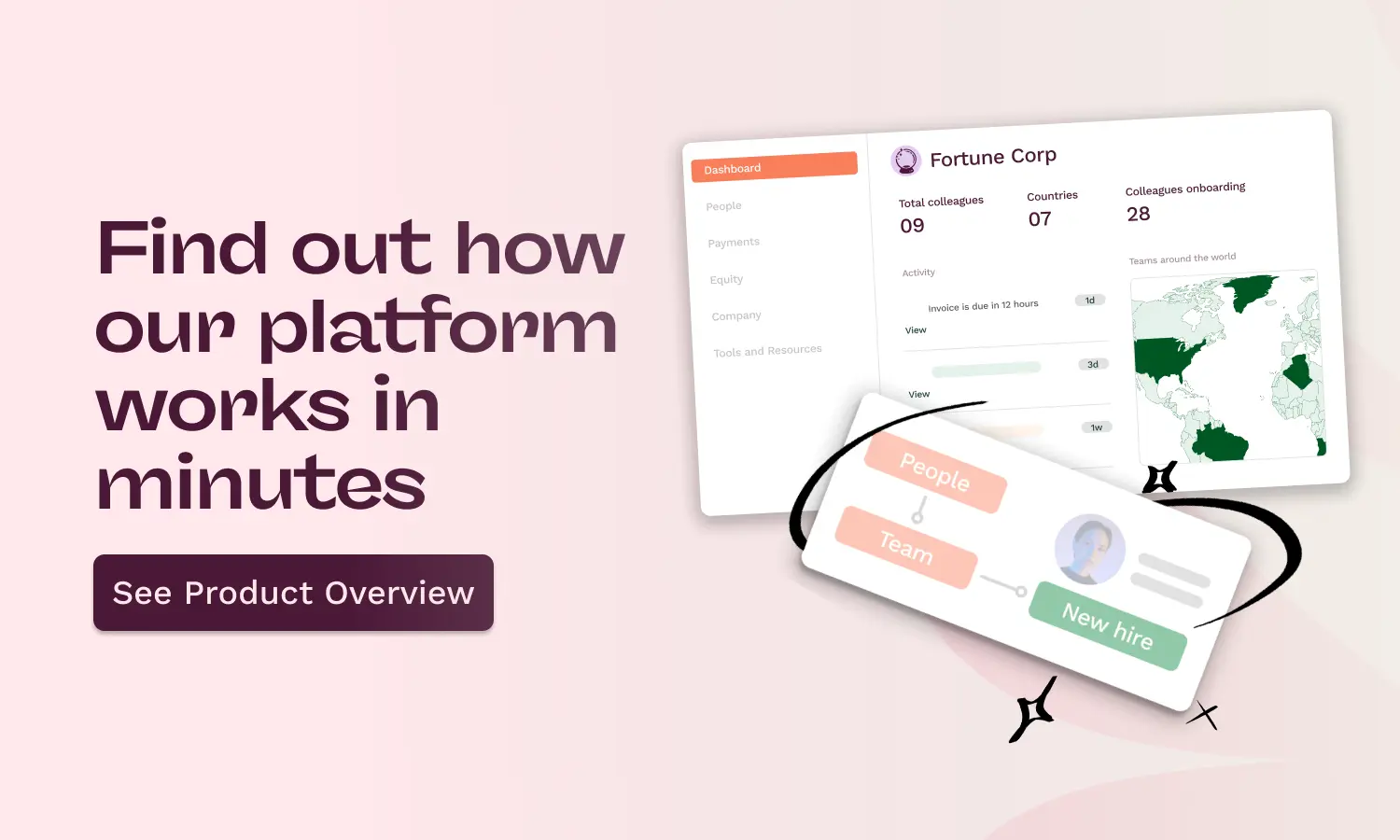The COVID-19 pandemic challenged many widely held assumptions and expectations surrounding work culture. In-person work once held far more legitimacy than remote work, but now remote and hybrid schedules are the norm across industries.
Although in-person work and remote work are both valid options, they’re not exactly the same—and this has left leadership and employees alike looking at career development with new eyes. This guide is designed to help both employers and employees adapt their career development planning and tailor it to a remote work environment.
What is career development planning?
For workers
From an employee’s perspective, career development planning is the process of setting goals to work toward over the course of their career. This involves identifying where an individual is in their career, voicing where they want to be and how they want to grow, and setting a plan of action to get there.
Interested in Oyster but want more information about how the platform works? This product overview should help.
For many employees, career planning involves meeting with leadership and discussing opportunities for growth and advancement both in the near future and in the long term. It also involves developing rapport with leadership, learning about their positions and responsibilities, and seeking advice and guidance for how to move forward.
For employers
As a manager or leader, it’s your job to facilitate effective planning for your employees. Career development plans are highly personalized and cannot be automated or standardized. Every person’s trajectory will look different, and every employee has unique goals and ambitions. You should encourage them to work toward their goals and enable them to meet those goals as well as you can.
How does career development differ for remote workers?
Career development may look very different for remote workers. In-person employees have the advantage of spending time in the office interacting with leadership, even when they’re not performing strictly work-related duties.
Offices are social places, and humans are social creatures. This inevitably leads to deepening relationships between people who spend a lot of time in close quarters. In-person employees will have the potential to build relationships with leadership during breaks, lunches, and downtime in the office, where it’s easier to engage in casual conversation.
These employees also have a higher likelihood of interacting with colleagues outside their immediate team, allowing them to gain insight into how the business functions in other departments, meet leadership from multiple levels, and develop goals that might not be immediately apparent otherwise.
On the other hand, remote workers are often separated from other team members, and they tend to feel that isolation acutely. They may still attend team meetings and social hours, but they don’t have the benefit of proximity to help them naturally form relationships.
This means they’re less likely to develop rapport with leadership, learn about other departments, and understand all the potential avenues for career growth. Building these relationships can be especially hard for remote workers during times of economic uncertainty. Without direct and frequent affirmation from leadership, these workers can feel disconnected or worry that their job is more likely to be cut than that of an in-person colleague.
Career development planning is much harder when an employee feels that they’re in a precarious situation. Luckily, there’s a lot that employers can do to bridge this gap.
Tips for developing remote worker careers
1. Highlight their progress
One way employers can help prevent feelings of stagnation and encourage remote employees to develop is by highlighting and celebrating their progress. Remote work offers many opportunities to invest in employee development, and having evidence of one’s progress can help them see their potential for growth.
Set rigorous standards for how performance will be measured, and update employees frequently to show how their performance holds up and how that can be used to advance their careers. Then encourage them to use this information for career development planning. Ask them where they want to be and how they want to get there.
2. Cultivate their network
Being around other individuals within your company offers in-person employees more organic opportunities to build their professional network. Remote workers don’t have the same opportunities by default, but you can create them intentionally. Organize online social hours between different departments, and plan activities that will allow employees from various teams to interact and collaborate. Encourage employees to cross-train in different areas.
You can also build infrastructure for virtual social committees, where employees can meet others who share their interests, and socialize and learn together at work. Clubs based on hobbies and interests can help your employees build their networks while also increasing morale.
3. Cut the busywork
If your remote workers are bogged down in busywork, they can quickly start feeling stagnant. An employee who is learning new things and growing will approach career development planning very differently than an employee who spends their time completing the same routine tasks and never sees growth.
Using software to streamline some of the repetitive, less rewarding work allows people to redirect their time and energy. These tools allow users to minimize extraneous work by automating tasks that don’t need to be done by hand, giving employees more time to focus on developing their most important skills.
You can also use a tool like Pando to keep track of employee performance, provide feedback, and accelerate career development and growth.
4. Encourage intentionality
The remote environment often blurs the lines between home and work, which can leave employees in a kind of limbo where they feel settled or unable to advance. You can counter this by encouraging your employees to be intentional about their careers. Regularly discuss what their career aspirations are, and don’t penalize goals that extend beyond their team or even the company as a whole.
If an employee grows beyond their role and leaves your company on good terms, your business has grown its network. Look at ambitious employees as a boon to your mission, even if they won’t be with you forever.
On the other hand, if an employee wants to grow within your organization, help them access the resources to do so. Help them set up meetings with leadership, ask them to do relevant training, and do your best to support their journey.


About Oyster
Oyster is a global employment platform designed to enable visionary HR leaders to find, engage, pay, manage, develop, and take care of a thriving distributed workforce. Oyster lets growing companies give valued international team members the experience they deserve, without the usual headaches and expense.
Oyster enables hiring anywhere in the world—with reliable, compliant payroll, and great local benefits and perks.






.avif)







_Leader_Leader%201%20(2)%20(3).svg)
_Leader_UnitedKingdom_Leader%201%20(1).svg)
_Leader_Europe_Leader%201%20(1).svg)
_Leader_Mid-Market_Leader%201%20(1).svg)
_Leader_Small-Business_Europe_Leader%202%20(2).svg)
_Leader_Small-Business_Leader%201%20(1).svg)
_FastestImplementation_Small-Business_GoLiveTime%201%20(1)%20(1).svg)